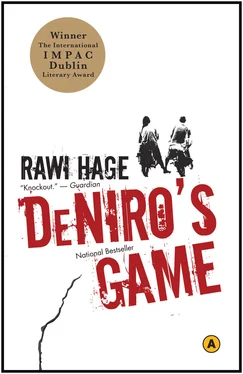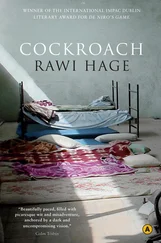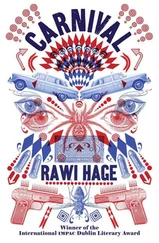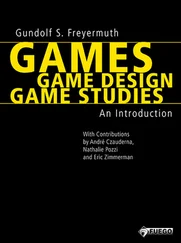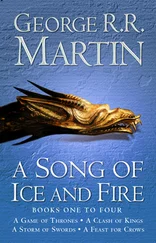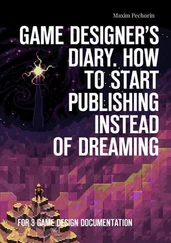I took the taxi. On the way, I threw the passport on the passenger seat. When we arrived at my hotel, I said, This is where I am staying.
The driver asked me for the fare.
TWO DAYS PASSED, and I did not attempt to see Rhea. I had finished reading my book. I slipped it in my bag, hoping to regain some of the weight I had lost in the absence of my gun.
One clear night, I walked back to the spot where I knew my gun lay. I hoped that the gun might have resurfaced and was floating against the current. Or maybe it was in the possession of a dead, underwater French soldier. Maybe it was using its own speed, accuracy, and semi-automatic capacity to shoot all the passing mouche boats from underneath, and sink the American agents on the boats posing as tourists and wine connoisseurs.
I stood for a minute, watching for bubbles, and hoping again for the gun to bounce up from under the water like fish that jump to chase hovering, narcissistic flies, gazing at their own reflection above the mirrored river surface. But the water was still. Then I heard gunshots muffled by the current of the river, and I knew that someone had unwrapped my gun. I approached the bank carefully, leaned over its edge, and saw the shifting shapes of the castles above me, and my own reflection. And my eyes beamed battle scenes from Beirut: I saw myself as a kid, running behind Al-Woutwat, who was using his AK-47 to shoot from behind sandbags; and I saw my little hands running after warm, empty bullets and collecting them in my shirt, in a kangaroo-pouch shape. And I saw the joy in my face while hopping (like a kangaroo) back home, and later exchanging my treasure with the neighbourhood kids.
FOR TWO MORE DAYS, I did not hear from Rhea or the visa lady. The first morning, I took the metro and walked to the Eiffel Tower. Tourists like little ants strolled under the monster’s metal feet. They looked up at it, protecting their eyes with small plastic cameras, posing underneath it like smiling statues, pressing their index fingers on tiny buttons to suck the light from their smiling faces, and to record the passing of time in latent images that were proof of their existence and the impermanence of their lives.
I sat and watched the pigeons feeding on sugary crumbs that fell from the children’s lips. I saw tourists landing in their buses, bouncing like astronauts, with bags filled with maps and guidebooks that might give them clues to the mystery of the moon. Those books talked about the importance of choosing the right restaurants and gave directions to the right museums, where the residues of history and the theft of empires were boxed in glass menageries suitable for their visits in the morning after tiny French breakfasts, which they ate while feeling nostalgic for lines at the buffet, and long stainless-steel containers, and wrinkled eggs, and over-easy eggs, and tasteless potato chunks, and neon-coloured jams, and chewy Wonderbread, and diluted coffee, which they sipped in sync with the big band music that filtered through from the kitchen, spiced by the humming of the black cook behind the swinging doors with the round boat windows that also swing on the Mississippi in ships that carry the tourists’ flour, corn, and greasy bacon.
THE SECOND MORNING, I stayed in bed, and Paris stood still and did not move or shift. I waited for the scenery to change outside my window, but it remained the same.
Down the street, a trail of soldiers returning from battle called me to march. So eventually I got up and marched to the Arc de Triomphe. I crossed the wide street swamped by impatient cars, running in circles. I passed under the arc and declared my triumph over my enemies. When I crossed to the other side, I decided to eat. I roamed the city looking for food. I sat at a café table and watched all the people rushing along the sidewalks. I ate what I was offered, paid, and walked back to my hotel.
Hakim at the front desk had a message for me: My suit was ready, and I was to come and pick it up tomorrow at the same hour, the same place.
That night, I had the urge to see Rhea. I walked to her place, and from far across the street I watched her bedroom. Her light was on, and every time her shadow brushed the window I would hide behind the wall, erasing my shape.
I watched her room until I ran out of smokes.
THE THIRD MORNING, I met the visa lady. We walked to the park where we’d talked before. We sat on the same bench.
We have it, she said. Here is what you should do. In the plane, before you arrive in Montreal, you go to the bathroom. You tear up your passport and dump it in the toilet. Do not leave a trace of it. Then, when you get off the plane, you tell the officer that you want to ask for refugee status. Make sure you tear up the passport. Do you have any other identification on you?
Yes, a Lebanese birth certificate.
That you can keep. Now tonight, go to this address. It is a restaurant. Someone will come and give the passport to you there. Be there around eight in the evening. Good luck.
I watched the woman leaving. I watched her rushing through the crowd, melting with the coats and suitcases, never to be seen again.
IN THE EVENING, I went to the restaurant. I ordered a beer, and smoked, and contemplated the night, like the Parisians do.
The place had small, round tables, crowded one next to the other, and everyone inhaled everyone else’s smoke. The round tables in such close proximity to one another formed a series of overlapping circles. Occasionally the formation was cut by the waiter’s white apron, crossing through and between tables like scissors. I waited, and after an hour I started to get nervous. No one had approached me, nor had I talked to anyone except the waiter. Finally, the waiter came to give me the bill, leaned against me, and said, C’est déjà dans ta poche .
I walked outside and frisked my pockets. I felt the passport in one of them.
Now I am allowed to fly, I thought. So I flew over Paris, watching the citizens’ hats bobbing like moving targets, the dogs sniffing one another’s wet tails, headlights going in circles and chasing one another like the dogs. And the higher I flew, the smaller the people became, smaller and smaller, minuscule and insignificant, and the more the streets and houses were arranged in circles, cut and shaped like tables around which brooding artists puffed their cigarettes and contributed to the evolution of the thick Parisian fog that concealed their deep thoughts from flying humans and sniffing dogs.
When I landed, I passed the Senegalese concierge at the hotel desk, forgot to greet him, and ran straight up to my room. I opened my passport: A Canadian visa was stamped in it.
THE NEXT MORNING, I WOKE UP EARLY, RUSHED TO RHEA’S apartment building, and rang her bell. Her sleepy voice came through the intercom.
I have the visa, I said.
Tu veux du café? she asked.
Oui , I answered.
She buzzed me up, and I found her walking slowly around her kitchen. Her nightgown was thin, white, transparent. She must have felt my eyes penetrating her short robe because she looked back at me and caught me staring. She quietly went to her room, changed into regular clothes, then came back and sat facing me. What are you doing these days? she asked.
I am reading and walking, I said.
She nodded. What are you reading?
A story about someone who kills an Arab in Algeria.
L’Étranger? she asked.
Oui, c’est ça .
She smiled. Come, let’s sit on the balcony, she said. It will be a few days before we get the air ticket. I will check today with Monique, the travel agent. Are you going to keep out of trouble until then? I do not appreciate being stalked.
I finished my cigarette.
Читать дальше
